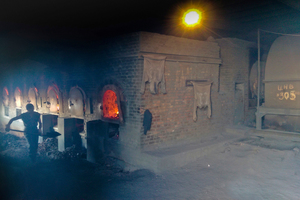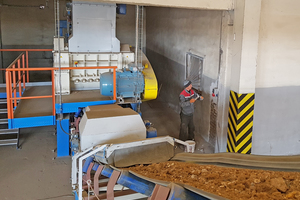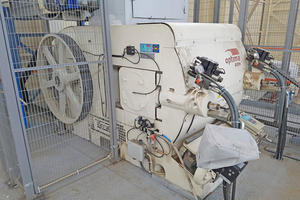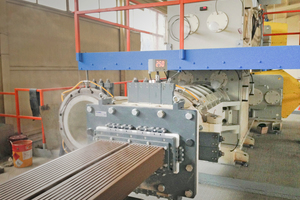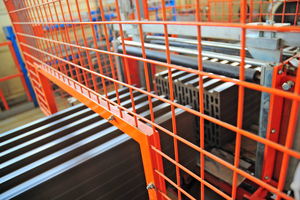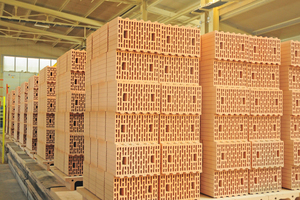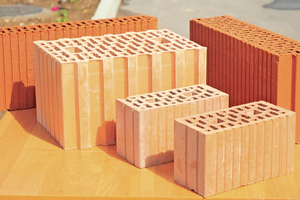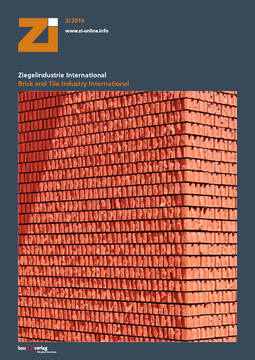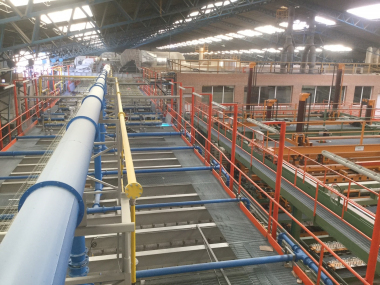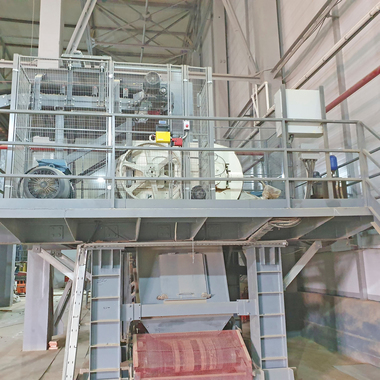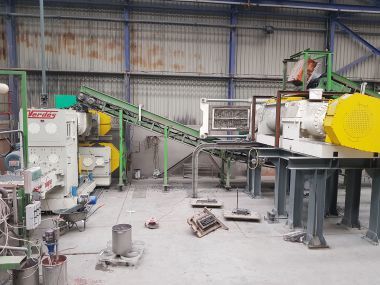Verdés equips Astana Ceramic with machinery for stiff extrusion
In many areas of Central Asia including Kazakhstan, the available clays are plastic enough to be extruded not only into high-quality hollow bricks, but also into large-sized porous wall ceramic blocks, which are gaining increasing popularity in this fast-developing region. The modest drying shrinkage (below 6.0%) of most of these clays allows cost-saving direct setting technology.
The extrusion rate amounts to 21 m³/h or 40 t/h. Working pressure varies between 25 and 30 bar depending on the product, the maximum pressure can reach up to 35 bar.After stiff extrusion, the green products are loaded onto tunnel kiln cars, and are then fired in a kiln heated with solid fuel (coal).
This project goes back to 2013 when four local entrepreneurs decided to purchase an old-fashioned labour-intensive brickmaking plant with outdated preparation and shaping machinery and two Hoffmann kilns. The kilns were fired with coal, dosed manually at that time. The clays used, however, were the best in the local region. At the time of the acquisition of old plant, there was an acute shortage of building materials in the rapidly developing capital of Kazakhstan, including clay bricks for solid construction. After half a year, the old line was recommissioned. It became clear, however, that the existing plant was not in the position to meet all market needs in quantitative and qualitive terms. As more and more large-size clay blocks were being imported from neighbouring Russia, the preconditions were favourable for the start of production of a line for large-size blocks.
The customer very prudently modernized his plant, dividing the modernization into several phases. Besides the improved primary comminution of the delivered raw materials and fine comminution of the clay body, replacement of the extruder with one that can work at much higher pressure and lower moisture level was on the agenda as this is essential for direct setting.
In the plants built in the former USSR, it is quite typical to use only single-shaft crushers at the reception of raw materials, regardless of the type of clay being processed, and without considering the geographical location of the plant. In this case, the customer’s raw materials contained a significant amount of shale and other inclusions with a hardness of up to 5 on the Mohs scale, which influenced the quality of the final product and significantly wore the equipment in the preparation area, and also led to the breaking of the cutter strings. In winter time, raw materials were directly brought from the quarry in the form of frozen lumps of clay.
To ensure proper primary processing of raw materials, a primary reinforced three-shaft crusher was installed, which can grind any frozen clay lumps without sticking, as well as crush any inclusions with hardness up to 5 Mohs. The maximum size of lumps at the entrance is up to 500 mm. 40 to 50 % of the raw material at the outlet has a fraction less than 12.5 mm. Under normal conditions, the maximum size of the fraction at the exit is not bigger than 80 mm. As clay preparation is a linear process, machines installed downstream of the crusher are exposed to significantly fewer stresses if proper processing is ensured at the initial stage.
To enable the production of thin-walled ceramic hollow wall blocks, as well as high-quality hollow bricks, fine roller mills with a hydraulic clamping of the rollers were installed to ensure operation below 1.0 mm gap.
The key element of the direct setting plant is an extruder capable of providing a high degree of reliability and stable operation when working in a wide pressure range between 25 and 45 bar. The Magna-575 de-airing extruder designed for stiff extrusion is equipped with a moisture control system and a set of dies. These dies can be used to shape two clay columns parallel (for making hollow bricks) as well as a large-format wall block.
Talleres Felipe Verdés, S.A.
www.verdes.com

